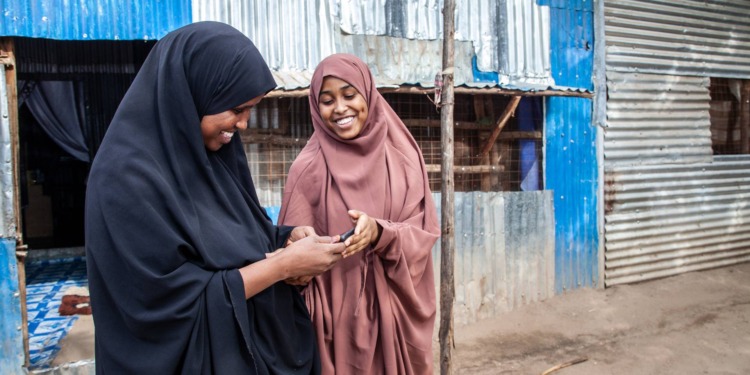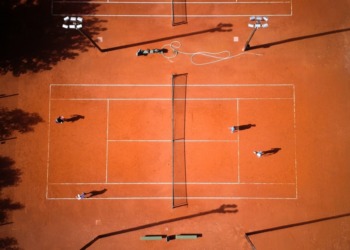Refugees and displaced people are a forgotten community, says entrepreneur Brian Onyango. But not forgotten by him, or his peers — who are powering up extraordinary change in northern Kenya.
Brian is part of an ecosystem of innovation at Kakuma Refugee Camp, home to about 200,000 people. There, grassroots enterprises are bringing affordable clean energy to refugees and their neighbours. These organisations have unlocked new jobs and higher incomes, better health, opportunities to learn, and connection with loved ones and the wider world.
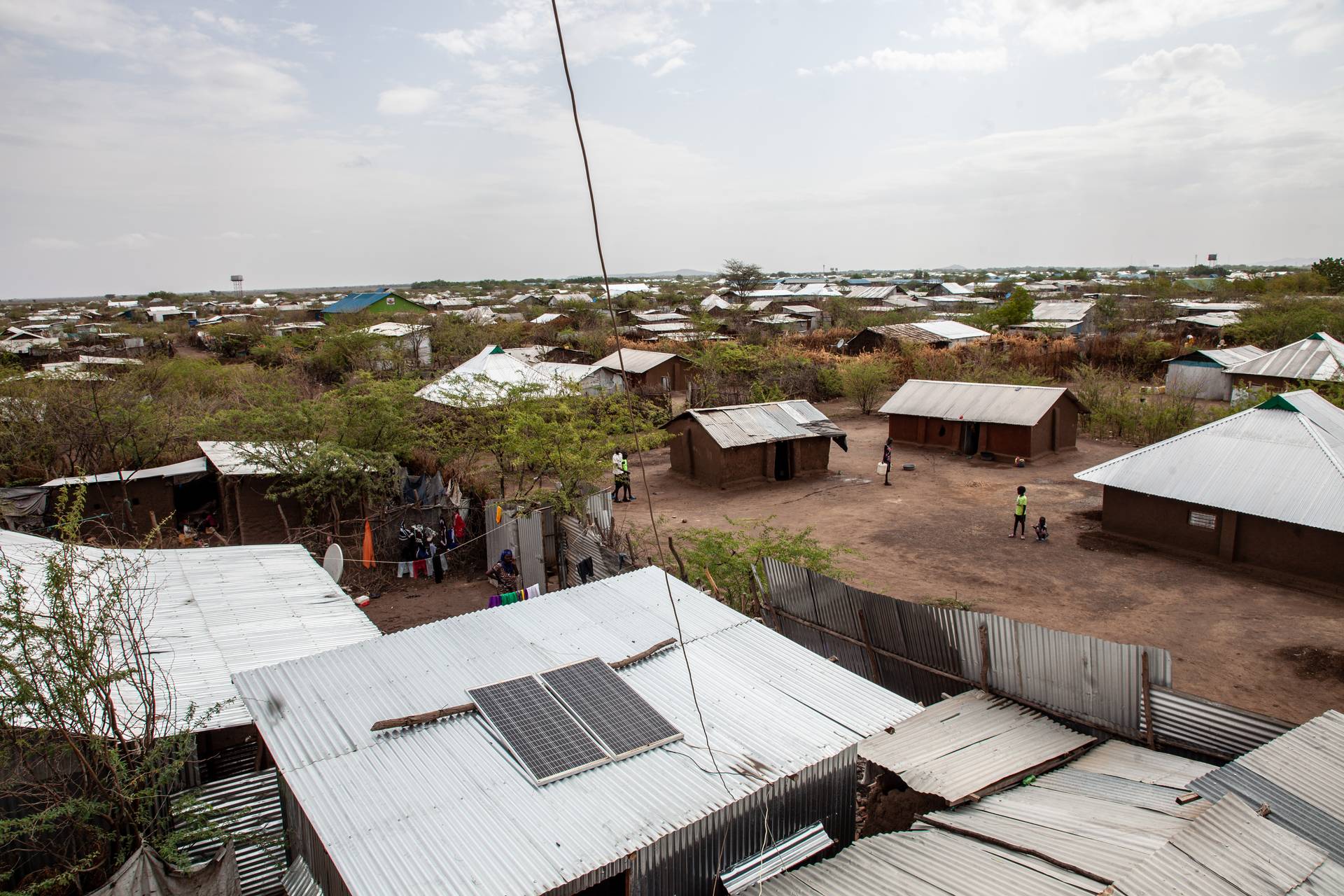
This is vital work. Worldwide, 94% of people living in refugee camps lack access to electricity. And millions are threatened by air pollution from basic cooking stoves and open fires, with women and girls in greatest danger.
So who is energising Kakuma Refugee Camp — and what’s their message to the COP28 climate summit, taking place in the United Arab Emirates now?
Hot food, clean air and seeds of hope
Brian is the founder and CEO of USAFI Green Energy. The company produces more than 100 affordable, efficient cookstoves a day at its Kakuma factory. These are sold to homes, schools and hospitals.
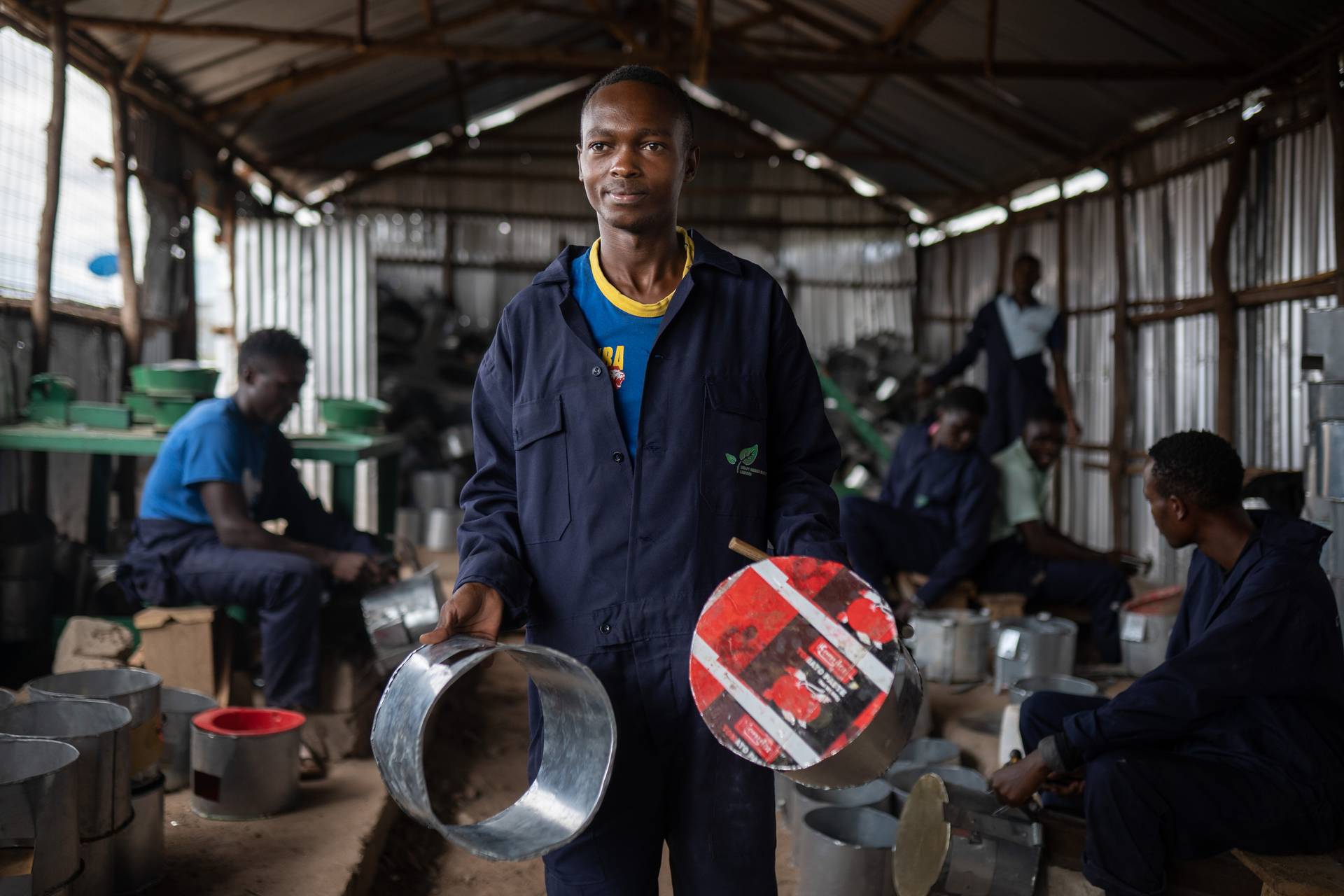
As well as making cooking faster and safer, the stoves cut the amount of time users spend gathering firewood — a task that normally falls on women and girls.
The stoves can be fuelled by wood, but can also use clean burning briquettes. USAFI also makes these at the camp, from compressed plants. The briquette ingredients include prosopis, an invasive tree species that dominates local vegetation, shrinks grasslands and is a danger to people and livestock.
USAFI replants the areas where it chops down the prosopis with more beneficial mwarubaini trees — also known as neem trees. It grows seedlings which are given to the community for free — more than 2,000 have been handed out so far.
The organisation’s employees include Irene Nandudu, who had worked as a hairdresser in her native Uganda — but struggled to find work when she arrived at Kakuma. She says: “Now that I have a job [making cookstoves], I am saving up to start my salon business here in Kenya and support my children.”
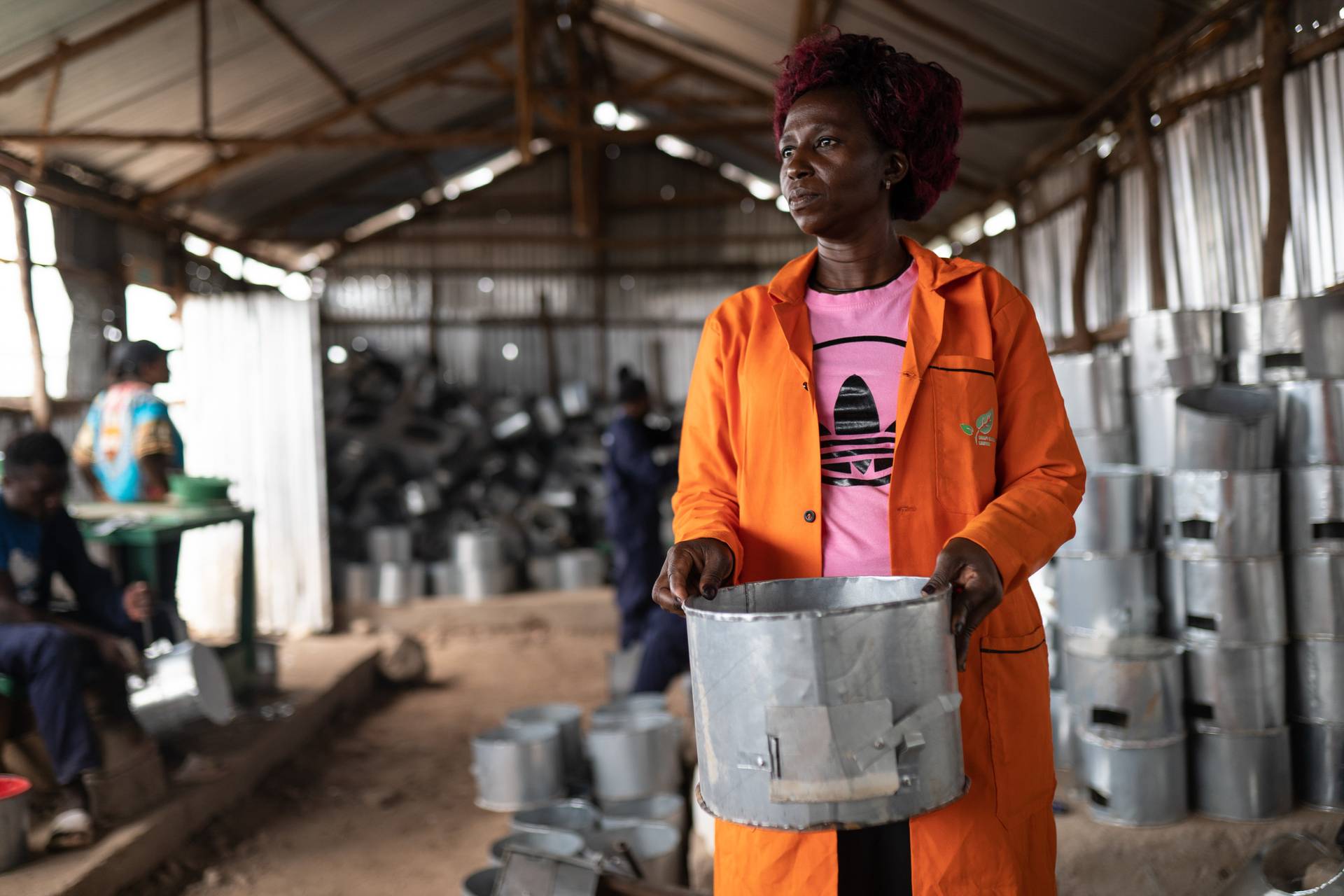
Hospital fridges and Wi-Fi hotspots
Brian’s neighbours at the camp include Solar Freeze. The company has developed a business model tailored to the needs of camp residents, offering small solar-powered fridges and freezers with an affordable pay-as-you-go business model.
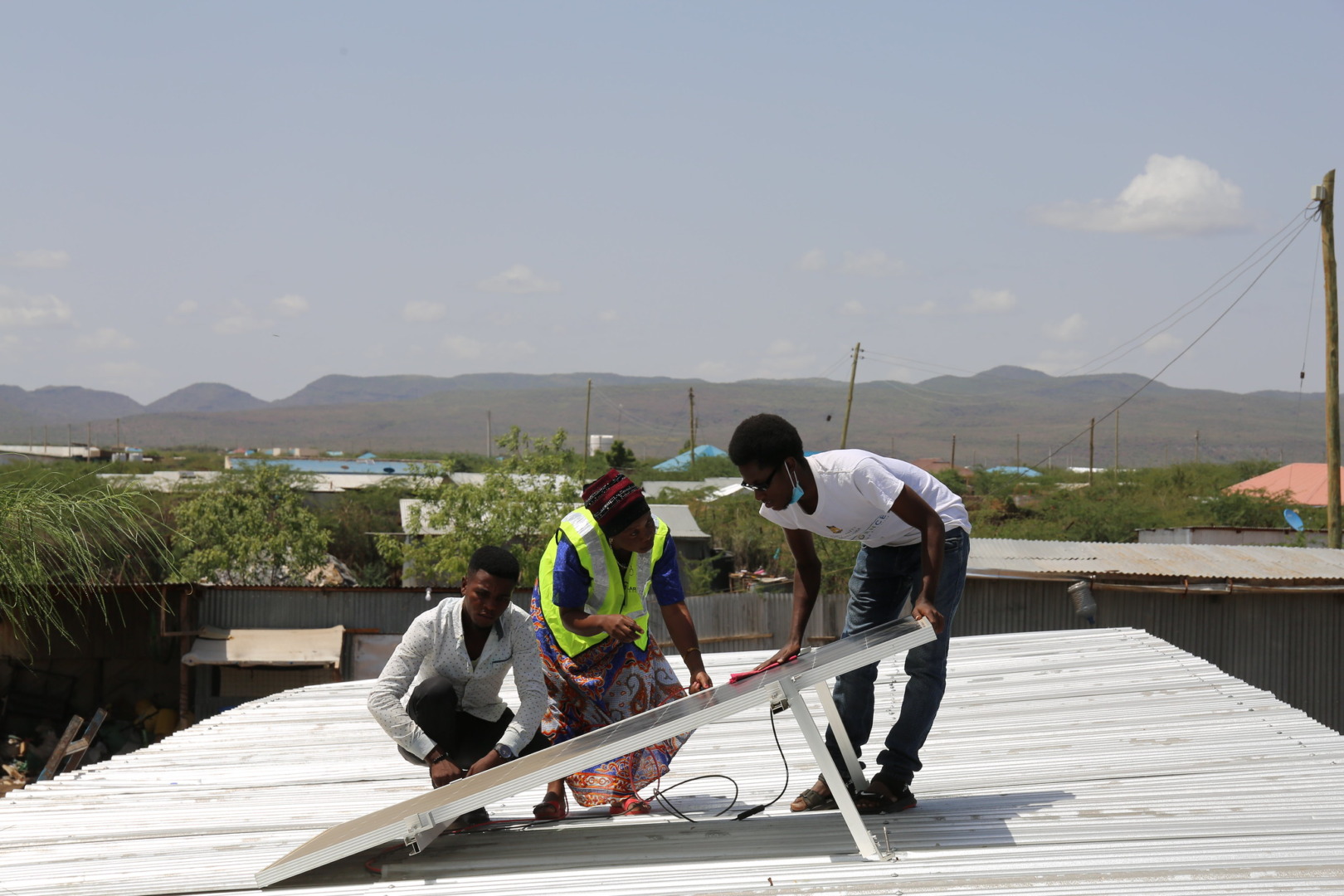
Customers include health centers, where they are used to store vaccines and treatments for conditions, including yellow fever and measles. Dog bites are a daily, and potentially fatal, risk in the camp — now it is easier to provide rabies medication.
Products are also sold to small shops that use them to store food and drinks. And the company has given free training to local people, setting them up for work as technicians or in other roles.
Past trainees include refugee Sakina Kariba, who is pleased to break through gender expectations. She says: “Every time I am in the field, I am highly motivated to be doing what I thought was a job reserved for men.”
Related Articles: Supporting Innovation in Refugee Inclusion | A New Response to Refugee Inclusion | Energy Access: Refugees Need Practical Solutions – And Policy Action | How an Approach to Fighting Poverty Is Transforming the Way Refugees Experience Displacement | Refugees: Why They Are Not an Economic Burden
Another groundbreaking organisation changing lives at the camp is Kakuma Ventures. Founded by refugee Innocent Tshilombo, it supports people to set up and manage Wi-Fi hotspots in their own neighbourhoods.
This creates a steady income for those who manage the hotspots, and the benefits of internet access and e-commerce opportunities to many others.
Over 1,500 people have been helped to get online, many of them first-time internet users. Internet access is boosting enterprises across the camp — from shops to graphic designers — as well as the education of more than 400 students. And the solar panels that power the Wi-Fi can be used to run other devices, such as lights or phone chargers, too.
Kakuma Ventures has also trained more than 60 young people in computing and solar engineering skills, and helped them find work.
Call for action at COP28
All three organisations have won the Ashden Award for Powering Refugees and Displaced People, which recognises trailblazing efforts to widen energy access. Entries to the 2024 awards are open now.
Ashden, a climate solutions charity, will do more to boost pioneers as member of the UK Government’s Transforming Humanitarian Energy Access initiative.
The programme, funded by the UK Government’s Foreign and Commonwealth Development Office, is supporting impactful investment and policy action by the UN and its humanitarian sector partners.
Organisations such as USAFI Green Energy, Solar Freeze and Kakuma Ventures have a clear ask to decision makers at COP28: more climate finance for the Global South, and work to ensure investment and funding reaches smaller organisations.
Innovators are also calling for the voice of refugees to be heard at COP and beyond — so the challenges they face are understood by those in power.
A groundbreaking climate, relief, recovery and peace declaration expected at this year’s summit may help to spotlight humanitarian issues. But change will only come if local pioneers get the backing they need.
** **
Discover more refugee energy innovation at the COP28 event Powering Gender Equity for Refugees at 10.30 am GMT on Friday 8. Taking place in the COP28 Innovation Zone (Island of Hope Stage) and streaming live online.
Editor’s Note: The opinions expressed here by the authors are their own, not those of Impakter.com — Featured Photo Credit: Ashden.


